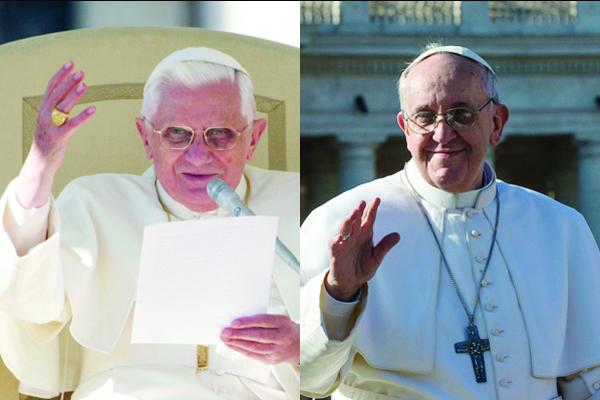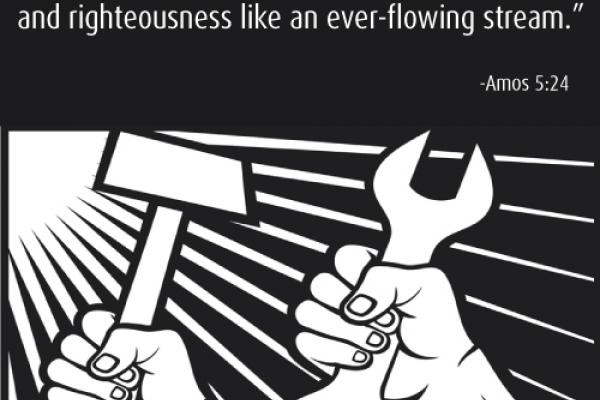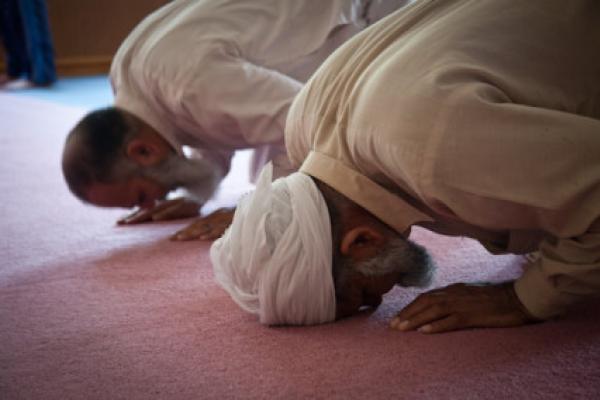In the secular American political world, even among progressives, two progressive focuses – social justice and healing of the Earth – have remained mostly segregated from each other.
But the Bible, in one of its crucial passages, intertwine social justice and the urge toward healing Earth. It is as if the Bible – after watching the alienation of two May Days (pagan spring and workers’ social justice) from each other – had shrugged impatiently and said: “Now here’s the way to do it!”
The Bible calls for an entire year of rest for the land and its workers, every seventh year. Deuteronomy adds that in that year, everyone’s debts are annulled. (Deut. 15: 1-3). Thus the Bible sees economics and ecologics as intimately intertwined, and calls for a practice of strong, spiritually rooted regulation of both.
Leviticus calls this seventh year a Shabbat Shabbaton – restfulness to the exponential power of Restfulness, an echo and expansion of the restful seventh day. Deuteronomy calls the year “shmitah” – “release” or “non-attachment.”
Why all this? Because, says YHWH, YyyyHhhhWwwwHhhh, The Interbreathing of all life, “The earth is Mine. You are but sojourners, temporary visiting-settlers, with Me.” (Lev 25: 23)
More than two months after his resignation, Pope Emeritus Benedict XVI will return to the Vatican on Thursday to live in a small convent that has been recently renovated for his needs.
Benedict’s return will face the Vatican with the unprecedented situation of a reigning pope and a retired pope living a short distance from each other.
The potential difficulty is compounded by the fact that Benedict’s personal secretary, Archbishop Georg Gaenswein, will move in with the former pope while he continues to serve as Pope Francis’ Prefect of the Papal Household, charged with setting his schedule and audiences.
When I got off the plane at O’Hare Airport in Chicago on my way home to Boston on April 15, I couldn’t believe my eyes. Televisions blaring everywhere showed my beloved city at her premier event of the year, the Boston Marathon. Everyone knows the rest of the story.
“Is this for real? How can this be?” I asked, unable at first to face the reality of what had occurred. Feelings of fear and anger followed quickly on the heels of the denial.
Leaders responded quickly: the mayor, the governor, the president. “Any responsible individuals, any responsible groups will feel the full weight of justice,” promised President Barack Obama.
What is justice? Vengeful words immediately spewed from talk shows and bloggers’ keyboards. “We must catch them alive and make them suffer as much as possible. That will pay them back for what they did,” spewed those who equate justice with revenge.
Of course, violence begets more violence. Gandhi put it succinctly: “An eye for an eye makes the whole world blind.” Paul exhorted the Romans, “Repay no one evil for evil, but take thought for what is noble in the sight of all. . . Beloved, never avenge yourselves, but leave it to God, for it is written, ‘Vengeance is mine, I will repay,’ says the Lord. (Romans 12:17,19.)”
If migrants and refugees worldwide were their own country, it would be the fifth most populous in the world today. Increasingly, it is women who are leaving their homes and families to seek work to support their families economically. They are the heads of households. They are the primary "breadwinners" for their extended families. They are also more vulnerable to sexual exploitation. The United Nations Population Fund recently hosted a week-long meeting to study the more than 100 million women who are migrant workers.IPS reports:
The face of migration is changing dramatically as women and girls now represent about half of the over 214 million migrants worldwide. And in some regions of the world, they outnumber their male counterparts, says Dr. Babatunde Osotimehin, executive director of the U.N. Population Fund (UNFPA). Addressing a week-long meeting of the 46th session of the U.N. Commission on Population and Development (CPD), which concluded Friday, he pointed out that many women migrate on their own as heads of households, to secure a livelihood.“Others leave their homes in search of more open societies, to get out of a bad marriage, or to escape all forms of discrimination and gender-based violence, political conflicts, and cultural constraints.”
Read more here.
Editor's Note: The following is the text of an invocation being given at the May Day Rally in Madison, Wis.
When we gather at a place like our State Capitol, there are people here from all sorts of religious and non-religious backgrounds.
There are Christians and Jews, Muslims and Buddhists, Hindus and and Bahai, Humanists and people who are pretty sure they believe something, but don’t know exactly how the heck to describe it.
What connects us all this day is a spirit of hospitality, a spirit of compassion and a spirit of justice.
At their worst, religious and other beliefs can isolate us in little camps where we see outsiders as threats. At their best, they call us to hospitality, not only to those we know, but to the strangers in our midst – those who come from other places, speak other languages, seek a new life. At their best, they call us to embrace those who seek to be part of our community.
It can be hard to come up with a list of countries with the most egregious records on religious freedom when some of the world’s worst offenders aren’t even nation states.
For its annual report of violators, the U.S. Commission on International Religious Freedom counts 15 nations where abuse of religious liberty is “systemic, egregious, and ongoing.”
But the commission, which was created by Congress in 1998 as an independent watchdog panel, also wants to highlight the crimes of non-nations, which for the first time this year get their own section in the report.
Muslims in America are much less inclined to support suicide bombing than other Muslims abroad, and are more likely to believe that people of other faiths can attain eternal life in heaven, according to a new report released Tuesday by the Pew Forum on Religion & Public Life.
“The World’s Muslims” report looks at Muslim views across seven categories: Islamic law; religion and politics; morality; women; relations among Muslims; interfaith relations; and religion, science, and pop culture. There is also a special section on U.S. Muslims.
Of the countries surveyed, only a majority of Muslims in America — 56 percent — believe people of other faiths can go to heaven; by contrast, that figure among U.S. Christians is about 64 percent. U.S. Muslims are also less likely than Muslims abroad to believe in evolution, sharing views that are closer to those of U.S. Christians.
On suicide bombing, 81 percent of U.S. Muslims said it was never justified, 7 percent said it was justified to “defend Islam,” and 1 percent said it was “sometimes justified.”





